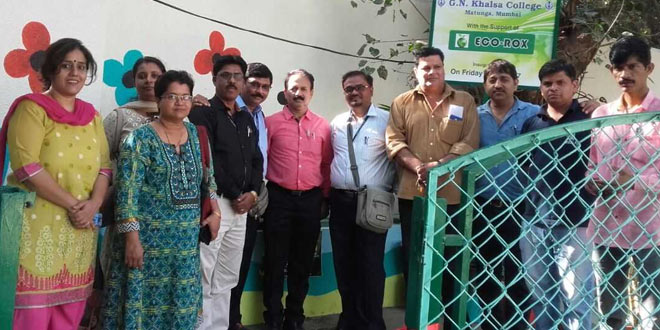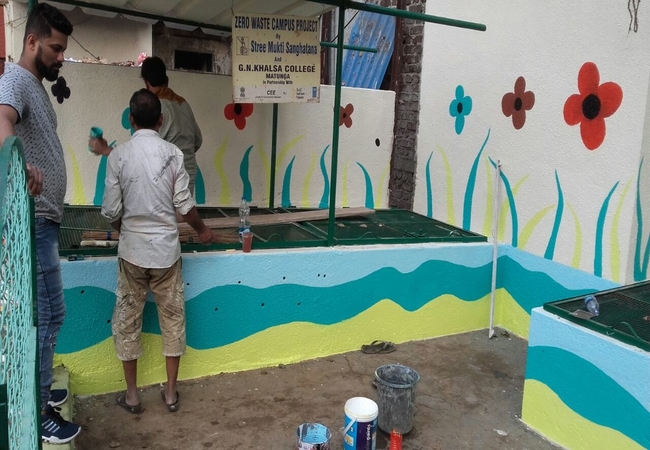New Delhi: Mumbai, on an average generates 6,400 tonnes of waste everyday which amounts to 1,92,000 tonnes per month. While reduction of 8,000 kilos every month from this humongous figure may seem insignificant, but just imagine if over 700 colleges in the city cut their waste generation and prevent their waste from reaching the landfill. That would be a significant amount. Though this may seem to be a long road ahead, the Guru Nanak Khalsa College of Arts, Science and Commerce has already embarked on this waste management journey.
On November 25 this, Khalsa College situated in Matunga, inaugurated three vermi composting units in their backyard in a bid to treat its wet garbage comprising food and garden waste. The college with a student population of 8,500 students and three food canteens generates nearly 8,000 kilos of wet garbage every month. Alarmed by the growing garbage crisis in the island city, the college management got in touch with a local NGO ‘Eco-Rox’.
After the Brihanmumbai Municipal Corporation (BMC) served notices to the bulk generators in the city to treat their own waste, the college authority thought of initiating a similar practice. To familiarise itself with the concept of composting we contacted the NGO who gave us training for a few days. Though the educational institutes are not mandated to process their own waste, we want to set an example by practising composting and integrating the students in waste management activities, says Dr Sudheer Lingayat, Convenor, the college’s Green Audit Team.
Also Read: In The Concrete Jungle Of Mumbai, Here Comes A Low-Cost, Eco-Friendly House Made Of Coconut Shells
In Phase I, four staff members along with canteen operators have been trained to process the wet garbage and accumulate it in the three pits designed to produce organic manure. The manure will be used in college gardens.
In the second phase, one representative from every department will be taught the process who will in turn pass on the practical knowledge to students. Hands on demonstration will be given to the students on the functioning of the composting unit. Circulars have also been put up on the notice boards requesting students to discard their leftover food in the pits.
It is not possible to make every student mandatorily put their food waste in the pit. But if every student is aware of where his or her waste is landing, a message will be generated. They will take this forward in their societies or houses and who knows they might even insist their family on treating their household waste, adds Dr Lingayat.
Once the composting process becomes a regular activity, the college will work on the problem of managing plastic waste. The college will soon minimise the usage of plastic items and may adopt different measures. For starters, the college will soon organise a competition cum seminar where students will be asked to come up eco-friendly ideas to replace plastic materials.
Also Read: Mumbai’s Khar Gymkhana Leads The Way In Waste Management, Reduces Garbage Generation By 50%





























